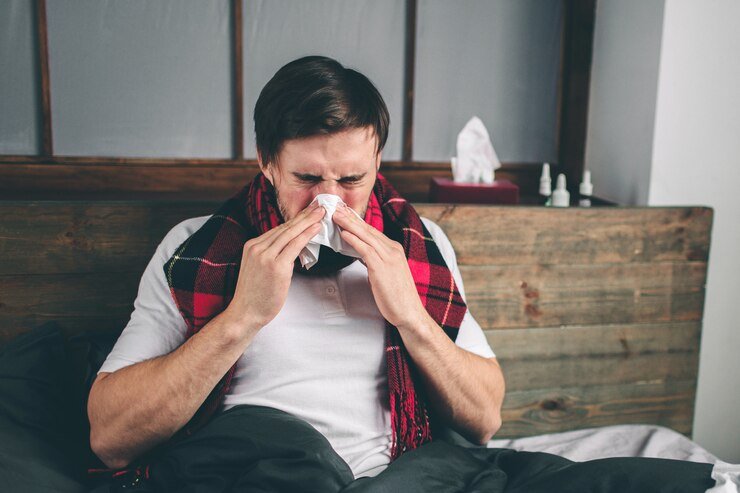Home / Respiratory Allergies
Respiratory allergies, also known as allergic respiratory diseases, are conditions characterized by an abnormal immune response to inhaled allergens, leading to inflammation and symptoms primarily affecting the respiratory system. Common respiratory allergies include allergic rhinitis (hay fever) and allergic asthma.
Allergic Rhinitis (Hay Fever): Allergic rhinitis is a condition characterized by inflammation of the nasal passages in response to airborne allergens such as pollen, dust mites, pet dander, or mold spores. Symptoms include sneezing, runny or stuffy nose, itching of the nose, eyes, or roof of the mouth, and watery eyes.
Allergic Asthma: Allergic asthma is a type of asthma triggered by exposure to allergens such as pollen, mold, pet dander, or dust mites. When allergens are inhaled, they can cause the airways to become inflamed and narrow, leading to symptoms such as wheezing, coughing, chest tightness, and shortness of breath.
Risk factors for developing respiratory allergies include a family history of allergies, exposure to environmental allergens, and certain lifestyle factors such as smoking or living in urban areas with high air pollution levels.
Diagnosis of respiratory allergies typically involves a combination of medical history, physical examination, allergy testing (skin prick tests or blood tests), and assessment of symptoms and triggers.
Management and treatment of respiratory allergies aim to alleviate symptoms, reduce inflammation, and prevent allergic reactions. Treatment options may include:

Overall, proper management of respiratory allergies requires a personalized approach tailored to the individual’s specific triggers and symptoms, with the goal of improving quality of life and minimizing the impact of allergies on daily activities.
 Call Now Button
Call Now Button